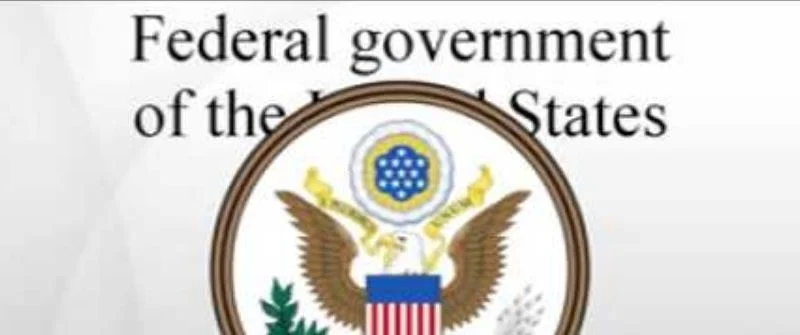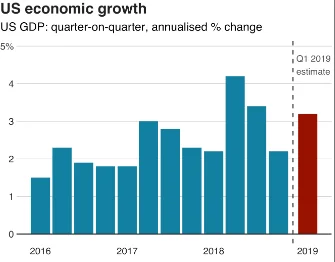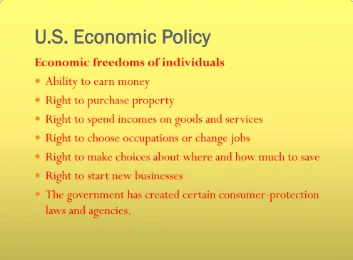How the Size of the US Government Affects Economic Growth

The expansion of the United States in social, economic and political dimensions impacted the federal government’s influence on local governance and international position.
Since 1861, the country has changed its domestic and foreign policy to align with the political and economic environment changes as it expanded its influence.
The domestic and foreign policy of the United States has been shaped over time by a number of factors. The factors include the increase in size, the expansion of its scope and the extent of the country’s influence. The discussion will explore the influence of these factors on the changes in the local and foreign policy of the United States.
How the Size of the US Government Affects Economic Growth
A larger size of the US government affects economic growth by increasing the economic demands of the country. As a result, the budget is stretched larger.

Therefore, the United States government has continually been faced with larger budgets.
As a result, the domestic policy on taxation was changed to increase the tax base and revenues to run the large government.
The expansion in size of the American borders led to an increase in the size of the federal government of the United States.
For instance, the federal government passed the Tax Reform Act of 1969 to increase tax revenues (Stelzner 69).
This change in the domestic tax and revenue policies illustrates the effect of a larger government whose mission was to increase its influence and expand its scope.
The increase in the size of the United States federal government led to the development of a larger responsibility to guard the states under federalism.
The expansion of the government to include the states several states meant a bigger responsibility to keep them within the union and protect them from external aggression.
For example, the admission of Arizona in 1912 opened a bigger responsibility to protect the state from external aggression. This was the main reason the United States changed its neutralist foreign policy during the First World War and joined the war (Keene 17).
This was after Germany threatened to attack the United States through Mexico and hand over Arizona and other southern states to Mexico as a reward.
The expansion of the influence of the United States federal government due to the growth in size also influences the relationship between the country and other nations. One notable influence is the United States’s role in international peace bodies and institutions.
To protect the country and foster peace, the country was instrumental in forming the League of Nations after World War 1 and establishing the United Nations organization after World War 2 (Keene 74).
This resulted from the country’s involvement in the two world conflicts as part of its obligation to protect the vast federal government. Since the states cannot make political decisions and negotiations independently, the federal government engaged in foreign policy to protect the country.
The large federal government commanded more influence in the global arena, which translates to the need to change its foreign policies.
As the country matched towards superpower status, trading was an economic practice that the country had to secure with other countries.

Therefore, the federal government of the United States negotiated foreign economic agreements as the United States and not as a state.
Therefore, the domestic and foreign policies concerning trade between individual states and the international community had to change.
The states have lost more freedom to negotiate trade with other countries with the federal government.
This way, the federal government maintains the united states’ economy as a single unit in the international arena.
At the same time, interstate commerce was promoted by the law and guided by the Interstate Commerce Act (Stelzner 49-50).
The large scope of influence of the United States federal government led to changes in domestic policy to manage the expanding economy. Therefore, major economic decisions are left to the federal government. These include fiscal and monetary policies that affect the economic opportunities in the United States.
The federal government has changed its policy in terms of monetary policy to create an economic environment that favours the economic growth of the federal economy other than individual states (Carbaugh 477).
For instance, to cover the expansive country, the federal government will increase its expenditure to provide public goods (Carbaugh 496). Government expenditure promotes the expansionary plans by the government, leading to an increased money supply.
Conclusion
The expansion of the size and scope of the United States due to the increase in the size of the federal government leads to changes in foreign and domestic policies.
The domestic economic policies are changed to facilitate the structures of raising government revenue, promoting trade and spending government resources across the member states.
Political policies are changed to maintain a united federal government and prevent any cessation that had caused the civil war in American history.
As a result of the large government, the responsibility of protecting the country from external aggression increased. Therefore, foreign policy changes were inevitable to secure the country from threats of war and armed attacks from foreign aggressors.
Works Cited
Carbaugh, Robert. International Economics. Boston, MA: Cengage Learning, 2012, Print
Keene, Jenifer. The United States and the First World War. New York: Routledge, 2014, Print
Stelzner, Mark. Economic Inequality and Policy Control in the United States. London: Palgrave Macmillan, 2015, Print
Want such a Brilliant Paper?
Let us help you get an A in your next assignment. Get such a paper written for you FROM SCRATCH. Place your order today!

Josh Jasen or JJ as we fondly call him, is a senior academic editor at Grade Bees in charge of the writing department. When not managing complex essays and academic writing tasks, Josh is busy advising students on how to pass assignments. In his spare time, he loves playing football or walking with his dog around the park.




